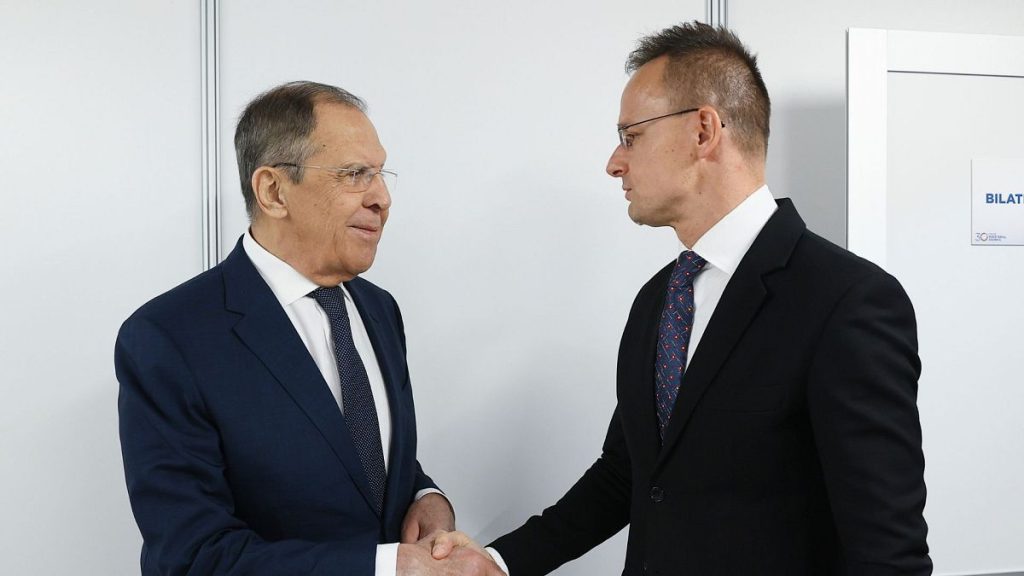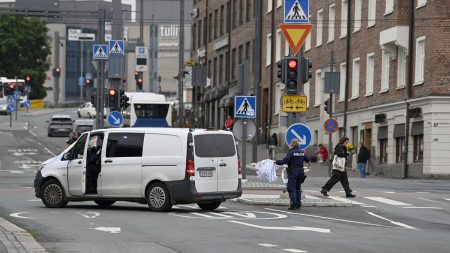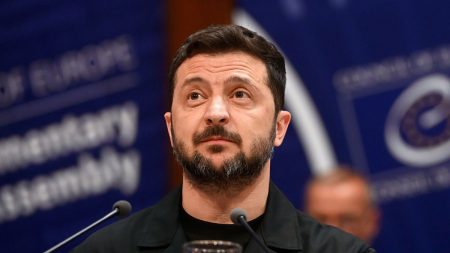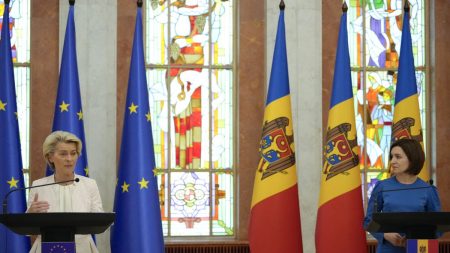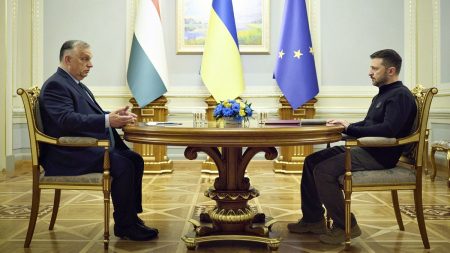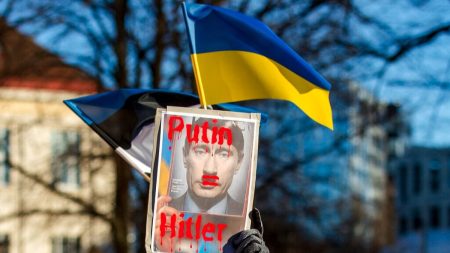NATO’s stance on Ukraine’s potential membership remains complicated, despite recent affirmations of an “irreversible” path towards accession. At a recent meeting in Brussels, NATO leaders—including those from Hungary and the Netherlands—addressed the ongoing conflict in Ukraine and its implications for NATO’s future. While high-ranking officials expressed support for Ukraine, Secretary-General Mark Rutte deflected questions regarding the specifics of Ukraine’s accession process. He emphasized instead the importance of enhancing Ukraine’s military capabilities through continued arms support, which is seen as crucial for its position in any future peace negotiations with Russia.
Hungary’s foreign minister, Péter Szijjártó, openly expressed skepticism about Ukraine’s imminent integration into NATO. He cautioned that admitting Ukraine into the alliance could escalate tensions, potentially igniting World War III. This perspective reflects Hungary’s complex relationship with Ukraine and an alignment with Russian interests. Szijjártó argued that rather than contributing to European security, Ukraine’s current state as a nation at war poses significant risks if joined to NATO. His stance highlights the critical nature of consensus within NATO, where all 32 member countries must agree on the admission of new members.
These discussions take place against the backdrop of heightened military activities in Ukraine as Russian forces advance. As NATO debates its strategies, Western nations are significantly increasing military support for Ukraine to bolster its defense before potential political shifts, including Donald Trump’s anticipated return to the presidency. Trump has previously criticized the Biden administration’s support for Ukraine and suggested controversial strategies for resolving the conflict, including territorial compromises that could undermine Ukraine’s sovereignty. His potential influence raises concerns about the future of Western support and the overall outcomes of the war.
Amidst the chaos, Ukrainian President Volodymyr Zelenskyy proposed that extending NATO membership to currently held Ukrainian territories may serve as a pathway to diminishing hostilities in the protracted conflict. His call for NATO expansion into more Ukrainian territory reflects a desperate bid to secure international protection and formalize commitments from allies. However, Szijjártó remained unconvinced, arguing that despite increased military aid, Ukraine’s battlefield situation continues to deteriorate. His remarks underscore a troubling narrative about the limitations of arms shipments in effectively turning the tide in favor of Ukrainian forces.
The rift among NATO members poses a significant obstacle for Ukraine. The need for unanimous consensus within the alliance is critical for any potential expansion. As Hungary’s position remains firm against Ukraine’s membership, it raises significant questions about the feasibility of NATO’s promise of support to Ukraine. Hungary’s objection epitomizes the challenges NATO faces in its enlargement strategy, particularly in a context where geopolitical tensions with Russia are paramount and underlying divisions among member states become more pronounced.
In conclusion, while NATO leaders express solidarity with Ukraine and declare its membership ambitions as irreversible, the reality on the ground seems much more complex. The alliance’s unity is tested by divergent views, particularly from Hungary, which could impact Ukraine’s strategic position and chances for future membership. Additionally, the evolving geopolitical landscape, influenced by shifts in U.S. leadership and the ongoing military conflict in Ukraine, complicates NATO’s ability to provide a consistent framework of support. The situation demands not only military solutions but also a careful diplomatic approach to mitigate further escalation and work towards a sustainable resolution to the conflict.




